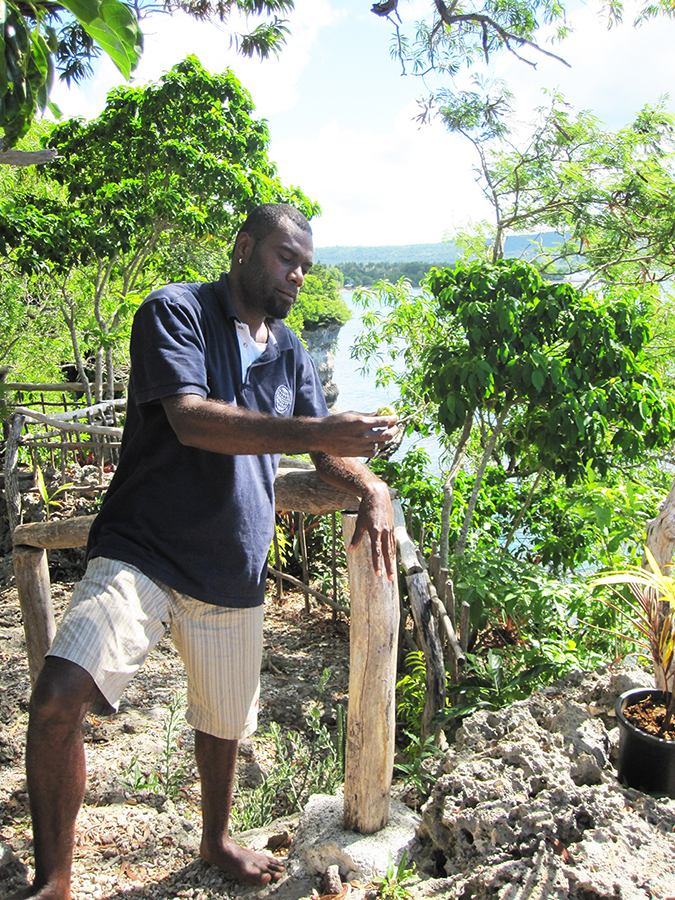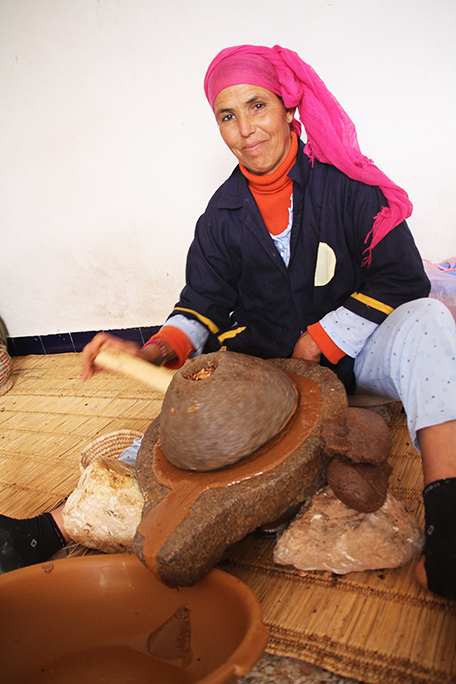ABS Capacity Development Initiative – Supporting the Implementation of the Nagoya Protocol on Access and Benefit Sharing (ABS)

OBJECTIVE
The project aims to support African countries and ACP member states in their efforts to operationalize the Nagoya Protocol at national level. Support of three core processes are:
- developing and revising ABS regulatory frameworks
- establishing fair and equitable ABS agreements
- ensure participation of IPLCs in both processes
The ABS Initiative is ready to provide support to GIZ implemented projects also beyond its regional scope (Africa, Caribbean and Pacific).
PROJECT DESCRIPTION
Access to genetic resources and the sharing of benefits arising from their utilization (ABS), including that of associated traditional knowledge, delivers economic and development opportunities, thereby contributing to biodiversity conservation. The ABS Capacity Development Initiative supports national processes to ensure that these resources are utilized in a sustainable way. The pivotal international instrument to achieve this goal is the Nagoya Protocol which entered into force in October 2014.
It was (…) a great pleasure for me to take part in the side event on the outcomes of a dialogue recently organized by the Initiative, which provided an opportunity to exchange experiences and lessons learnt with respect to past ABS implementation in Brazil, India and South Africa. I hope that more follow up dialogues such as this will be organized by the Initiative in the future as these types of exchanges are critical to ensuring coherence and will be complementary to the implementation of the Nagoya Protocol. – Braulio Ferreira de Souza Dias, Executive Secretary, Secretariat of the Convention on Biological Diversity (SCBD)
The concept of ABS is high on the agenda worldwide and also integrated into the SDGs. With many countries ratifying the Nagoya Protocol, the number of requests to support national ABS implementation is rising. The ABS Initiative and its partners address these requests by developing and applying tools in three main areas: knowledge generation and management, human capacity building and awareness raising. In 2006 the Initiative started off with a focus on Africa. Drawing on expertise and networks rooted in over a decade of ABS experience, the Initiative extended its activities to all members of the African, Caribbean and Pacific (ACP) Group of States. The focus of the current programme phase (2015-2018) is on selected African countries. Lessons learned will inform developments in other countries and regions.
SUCCESS STORIES
 In the Pacific region, the ABS Initiative cooperates closely with the Secretariat of the Pacific Community (SPC) and the Secretariat of the Pacific Regional Environment Programme (SPREP). A series of regional ABS workshops have raised awareness at the political level, which is manifested in the high number of ratifications by Pacific island states. Particularly noteworthy milestones are: Close collaboration of the ABS Initiative with the GEF Small Grants Program resulted in a strategic project for awareness raising and capacity development of indigenous peoples and local communities (IPLCs) in Vanuatu. Support to national processes resulted in ABS policy documents and first steps towards regulatory frameworks in Micronesia, Palau, Samoa and Vanuatu, as well as a national GEF project in the Cook Islands for establishing an efficient ABS framework. The ABS Initiative has been invited to serve as member of the Steering Committee of the SPREP executed regional GEF project on ABS capacity building in this region.
In the Pacific region, the ABS Initiative cooperates closely with the Secretariat of the Pacific Community (SPC) and the Secretariat of the Pacific Regional Environment Programme (SPREP). A series of regional ABS workshops have raised awareness at the political level, which is manifested in the high number of ratifications by Pacific island states. Particularly noteworthy milestones are: Close collaboration of the ABS Initiative with the GEF Small Grants Program resulted in a strategic project for awareness raising and capacity development of indigenous peoples and local communities (IPLCs) in Vanuatu. Support to national processes resulted in ABS policy documents and first steps towards regulatory frameworks in Micronesia, Palau, Samoa and Vanuatu, as well as a national GEF project in the Cook Islands for establishing an efficient ABS framework. The ABS Initiative has been invited to serve as member of the Steering Committee of the SPREP executed regional GEF project on ABS capacity building in this region.
 The ABS Capacity Development Initiative is supporting a series of activities to facilitate the exchange of experiences with ABS implementation and to support the implementation of the Nagoya Protocol. In collaboration with the Governments of Brazil, India and South Africa, the ABS Initiative commissioned national studies to review each country’s experiences with ABS. Lessons learned from these experiences will inform the global implementation of the Protocol. A first Dialogue on Practical Ways Forward for the Implementation of the Nagoya Protocol was hosted by the Government of South Africa on 30-31 January 2014 in Cape Town, South Africa and the second Dialogue on the same topic co-organized with the Ministry of Environment and Forests of India, from 4-6 August 2014 in Goa, India. Both events served as successful international exchange platforms between representatives from a selection of countries. The focus of the first dialogue was to learn from past experience with ABS implementation with a view to inform the implementation of the Nagoya Protocol. The second dialogue dealt with key challenges and the instruments/approaches that are being considered by countries for the implementation of the Protocol, taking into account the lessons learned from past practice and obligations under the Nagoya Protocol.
The ABS Capacity Development Initiative is supporting a series of activities to facilitate the exchange of experiences with ABS implementation and to support the implementation of the Nagoya Protocol. In collaboration with the Governments of Brazil, India and South Africa, the ABS Initiative commissioned national studies to review each country’s experiences with ABS. Lessons learned from these experiences will inform the global implementation of the Protocol. A first Dialogue on Practical Ways Forward for the Implementation of the Nagoya Protocol was hosted by the Government of South Africa on 30-31 January 2014 in Cape Town, South Africa and the second Dialogue on the same topic co-organized with the Ministry of Environment and Forests of India, from 4-6 August 2014 in Goa, India. Both events served as successful international exchange platforms between representatives from a selection of countries. The focus of the first dialogue was to learn from past experience with ABS implementation with a view to inform the implementation of the Nagoya Protocol. The second dialogue dealt with key challenges and the instruments/approaches that are being considered by countries for the implementation of the Protocol, taking into account the lessons learned from past practice and obligations under the Nagoya Protocol.
TO LEARN MORE
PUBLICATIONS
- The ABS Capacity Development Initiative
- PHARMACEUTICAL SECTOR – Salinispora tropica (The Bahamas)
- Relevance of Marine Bioprospecting for ABS Frameworks
- The ABS Agreement Key Elements and Commentary
- Studying existing ABS arrangement in CARICOM
- Strategic Communication for ABS
- Policy Paper – How ABS and Nagoya Protocol contribute to SDGs
- Online Permit and Monitoring System Supporting National NP Implementation
- Mutually supportive implementation of the Plant Treaty and the Nagoya Protocol
- Introduction to Drafting Successful ABS contracts
- How (Not) to Negotiate Access and Benefit Agreements
- Concept National ABS Gap Analysis
- Community Protocols and Access and Benefit Sharing
- Biodiversity and Culture Exploring Community Protocols Rights and Consent
- Biocultural Community Protocols Toolkit for Practitioners Natural Justice
- African Union Strategic Guidelines for the Coordinaetd Implementation of the Nagoya Protocol on Access to Genetic Resources
- Access and Benefit Sharing The Pharmaceutical Industry
- Access and Benefit Sharing The Food and Beverage Industry
- Access and Benefit Sharing The Cosmetics Industry
- Access and Benefit-sharing of Animal Genetic Resources
- Access and Benefit Sharing INDUSTRIAL BIOTECHNOLOGY
- Access and Benefit Sharing Agriculture
COUNTRY
Pacific Island Countries
DURATION
Jan 2015 - Dec 2018
Commission Agency
BMZ


